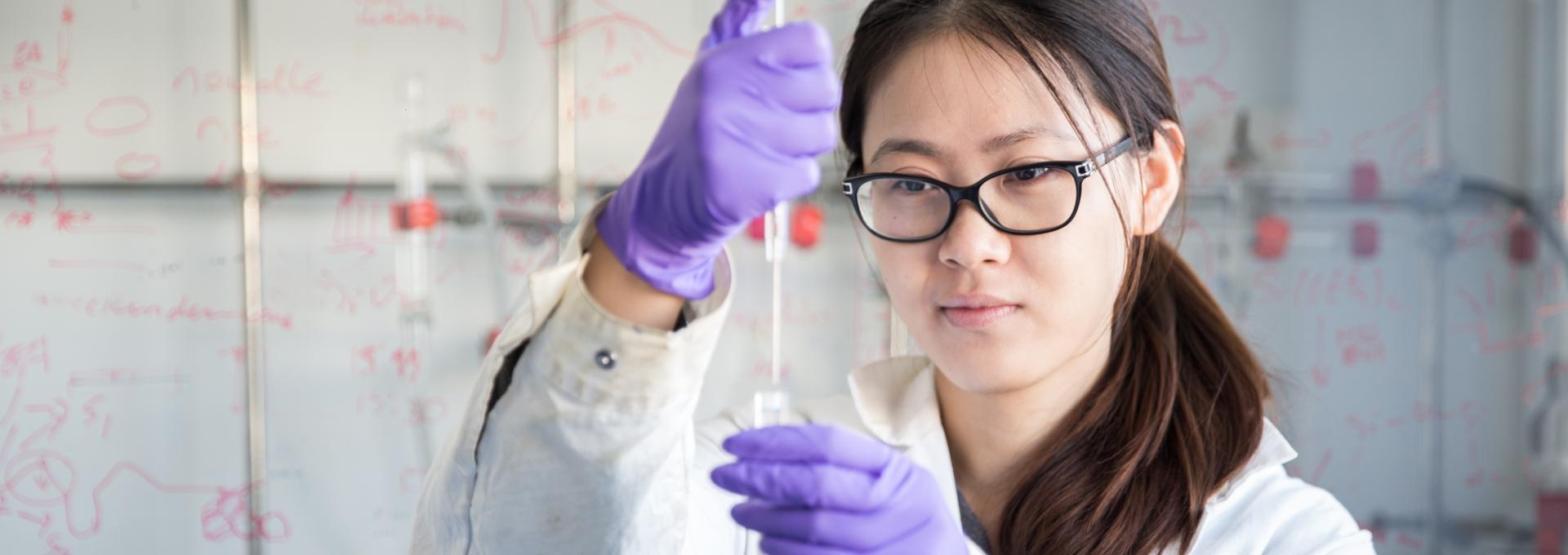The Welcome Day of the Doctoral School of Institut Polytechnique de Paris will take place on Tuesday, December 10, 2019 from 8:30 – Poincaré amphitheater – Ecole Polytechnique.
On this occasion, Adriana TAPUS, Director of the Doctoral School of Institut Polytechnique de Paris will welcome, with her team, the new and already enrolled PhD students.
We look forward welcoming you at the Doctoral School of Institut Polytechnique de Paris (ED IP Paris, ED° 626)!
Check out the detailed program:
08:30 am – Welcome of the PhD students around a French style breakfast!
09:00 am – Opening Welcome Speech by Eric LABAYE, President of the Institut Polytechnique de Paris
09:15 am – Presentation of the Doctoral School by Adriana TAPUS, Director of the Doctoral School IP Paris and the heads of the six research domains
10:15 am – Presentation of the PhD students Associations
10:30 am – Keynote Speaker: Abdul BARAKAT, Full Professor at LadHyX, Ecole Polytechnique
 Title: Optimizing the Performance of Endovascular Stents: Cells, Vessels, and Connected Devices
Title: Optimizing the Performance of Endovascular Stents: Cells, Vessels, and Connected Devices
Abstract: The pathological complications of atherosclerosis, namely heart attacks and strokes, are the leading cause of mortality in the world. The most common treatment for atherosclerosis is the implantation of a stent, a wire-mesh structure that is deployed on a balloon catheter and expanded at the location of arterial obstruction to restore blood flow. Most stents deployed in coronary arteries today are drug-eluting stents (DES) that release a drug into the arterial wall in a controlled manner in order to prevent the occurrence of certain complications. However, despite the widespread use of DES, there is a persistent risk of serious complications including in-stent restenosis (vessel re-blockage), late stent thrombosis (blood clot formation), and stent fracture. Minimizing the incidence of these complications requires devising optimal DES designs that strike a fine balance among a myriad of competing considerations including drug release dynamics, stent strut dimensions, and stent surface characteristics that accelerate device cellular coverage. In this talk, I will describe a multi-variable optimization approach to optimize DES design. I will also present a stentable coronary artery mimic that we have developed in order to experimentally test the predictions of the computational optimization. This arterial mimic contains the relevant cells of the arterial wall and allows cellular monitoring as well as detailed characterization of arterial flow fields using particle image velocimetry. Finally, I will describe two novel approaches for radically improving stent performance: 1) patterning stent surfaces to accelerate device cellular coverage, and 2) developing smart and communicating stents that can detect the onset of stent restenosis or thrombosis and communicate the information wirelessly to the outside world.
Bio: Abdul Barakat is CNRS Director of Research and the AXA Endowed Professor of Mechanics and Biology at Ecole Polytechnique in France. He is also an adjunct professor of Mechanical and Manufacturing Engineering at the University of New South Wales in Sydney, Australia. Prof. Barakat obtained a Ph.D. in biofluid mechanics from MIT in 1994. He subsequently spent a year as an NIH Postdoctoral Fellow at the University of Chicago. In 1995, he was recruited as Assistant Professor in the Department of Mechanical and Aerospace Engineering at the University of California, Davis. He was promoted to Associate Professor in 2001 and to Full Professor in 2006. At UC Davis, he was also on the faculty of the Biomedical Engineering, Biophysics, and Applied Mathematics graduate programs. He relocated to France in 2010. In 2014, Prof. Barakat co-founded the startup company Sensome (previously Instent), which develops state-of-the-art sensor technologies to equip medical devices. Prof. Barakat is recipient of a Pfizer-Parke Davis Atorvastatin Research Award as well as a permanently endowed Chair from the AXA Research Fund and is an elected Fellow of the American Institute for Medical and Biological Engineering. He has published over 240 peer-reviewed journal and conference papers and has delivered over 150 invited presentations in the fields of cardiovascular bioengineering, cellular mechanobiology, and endovascular devices.
11:30 pm – Doctoral School IP Paris: Picture
12:00 pm – Lunch in the Grand Hall of Ecole Polytechnique
Poster Session: 2nd and 3rd Year Enrolled PhD students
02:00 pm – Starting Voting for the Best Poster Award
02:15 pm – Keynote Speaker: Stéphane GENTRIC, Research Unit Manager at Idemia
 Title: Biometric Recognition at Idemia : Applications and Challenges
Title: Biometric Recognition at Idemia : Applications and Challenges
Bio: Stéphane Gentric is Research Unit Manager at Idemia (ex Safran-Morpho) and Associate Professor at LCTI, Telecom ParisTech. He received his PhD on Pattern Recognition at UPMC in 1999. As principal researcher then team leader, he worked on Fingerprint recognition algorithms, then Face, then Iris and now also Video Analytics. As Senior Expert, he was involved in most of Idemia’s projects in biometrics for the past 15 years, such as the Changi border crossing System as well as NIST benchmarks, or the UIDAI project. His current research interests center around pattern recognition for improvement of biometric systems.
03:15 pm – Doctoral School of IP Paris: Best Poster Awards
03:30 pm – Closing
